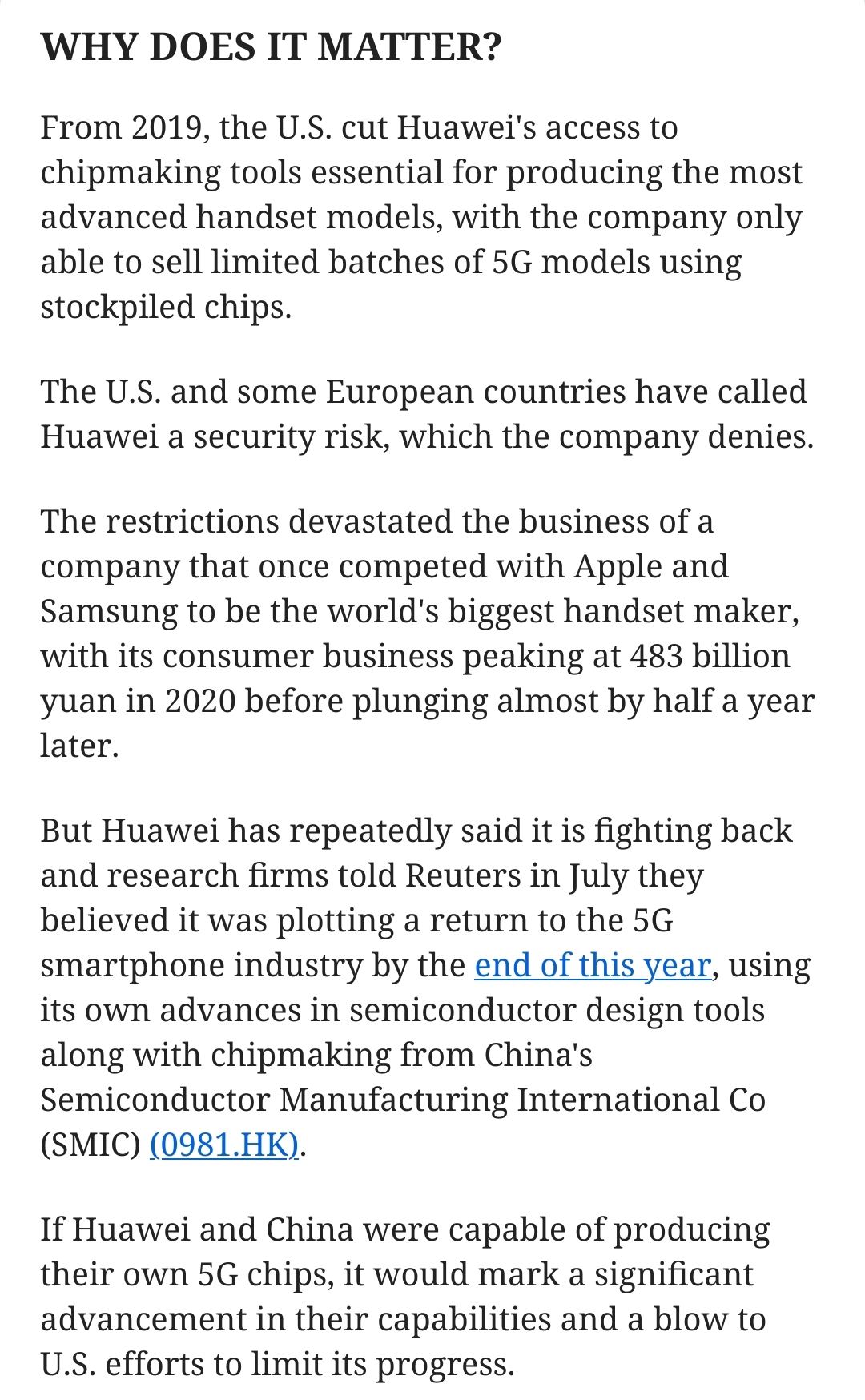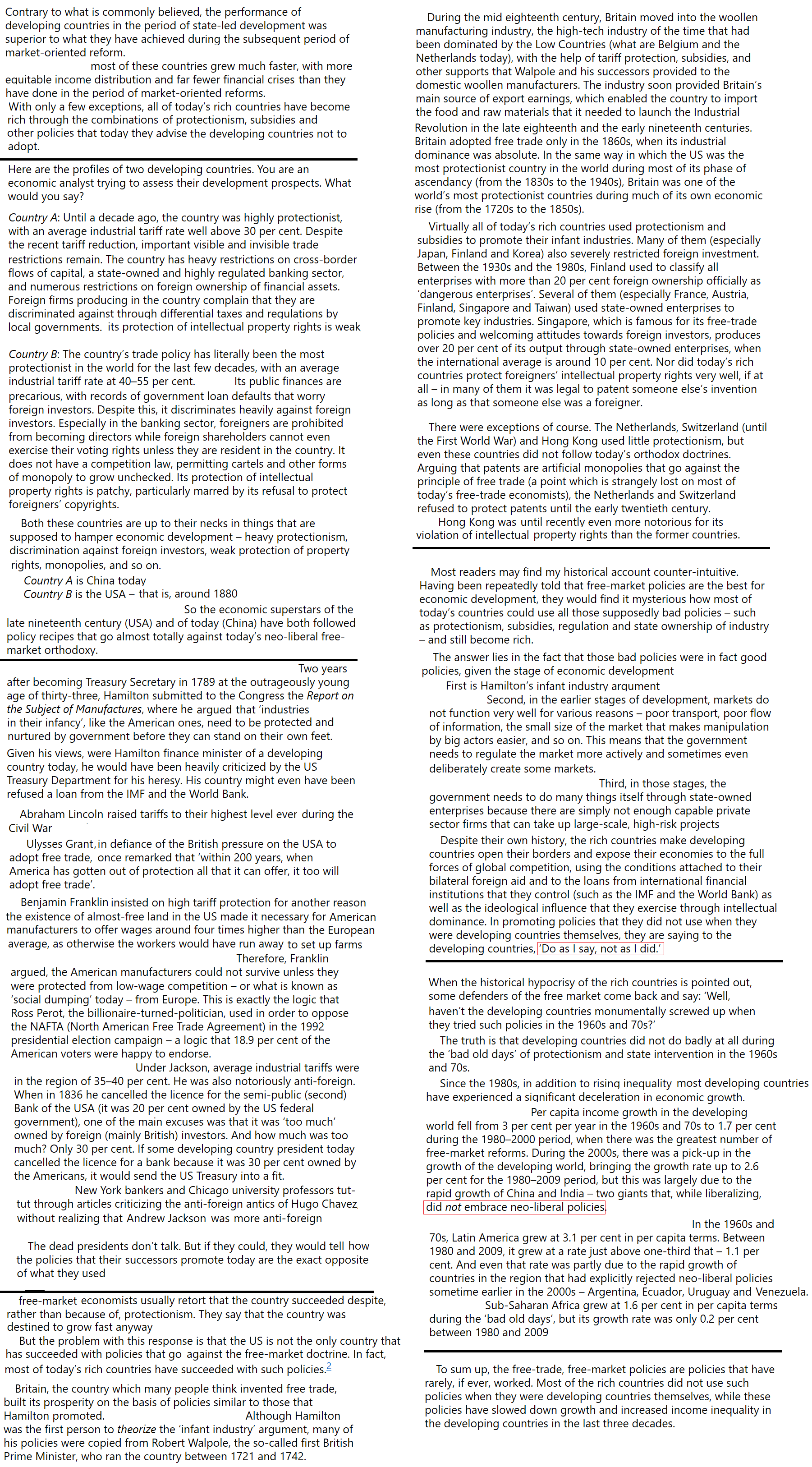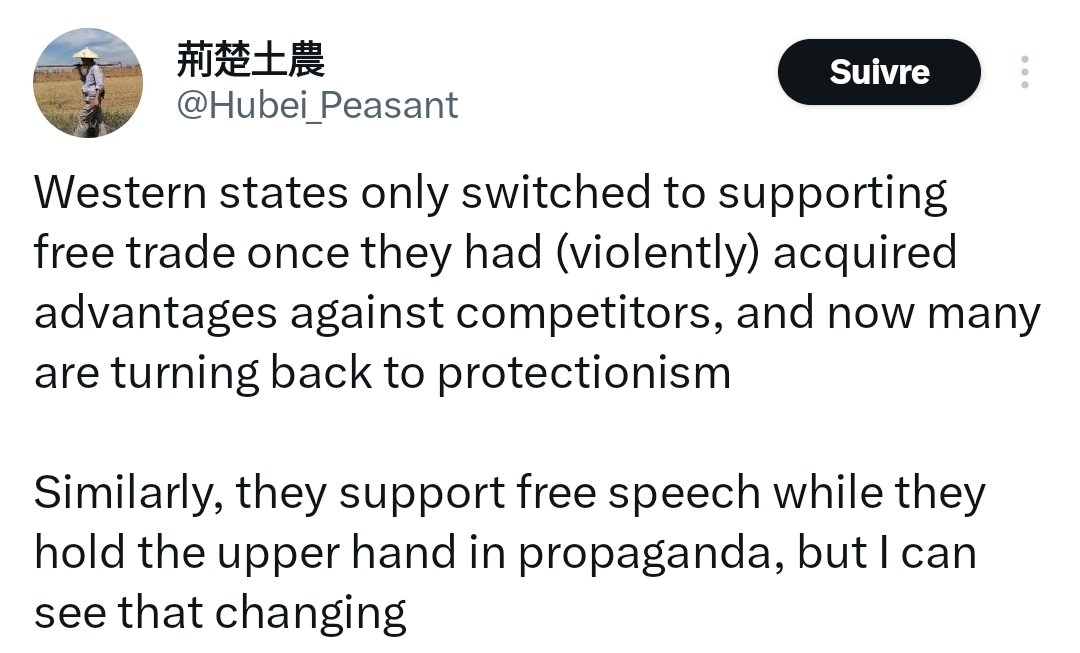Here’s Reuters taking notice and writing that « the release sent Chinese social media users and state media into a frenzy » :

Here’s Reuters taking notice and writing that « the release sent Chinese social media users and state media into a frenzy » :

Sanctions are only effective against countries without industry, and heavily dependent on extractivism as their main economic means.
exactly, that’s why developing national industry is key in the contemporary world REGARDLESS of how efficient/productive your processes are.
Economic sanctions aren’t only on materials(, e.g., sanctions on Russia’s central bank), but even when they are, they don’t only concern the exportation of raw materials, but also their importation, as well as the importation&exportation of manufactured products, which means that out of these 4 cases there’s 3 that impact industries. Correct me if i’m wrong.
The point is that if you sanction a country like DPRK with a weaker industrial and technological base, you can cripple them very severely. China is a much more advanced country. Them being sanctioned in the realm of 5G chips led to an initial slump but eventually they ended up becoming capable of manufacturing their own chips which in the end is a huge win for China.
Moonofalabama had a short post about this earlier in case you wanna read it: https://www.moonofalabama.org/2023/08/huawei-chips-demonstrate-the-perils-of-technology-protectionism-.html
Yeah, i took his comment way too literally since its false sense of security made me feel uneasy, he obviously meant that it’s (a bit )harder, not impossible. We should be sanctioned ourselves to feel/understand them, the economic destructions they cause are also responsible for an unrest attributed to the leaders(, it’d be much harder to lead China if its economy wasn’t doing so well). It’s not “using the sanctions as a leverage” but “maintaining their head under the water until they submit”.
The only way out, if autarcy isn’t a valid option(, autarcy ≠ protectionnism, only the first one is nocive), is to have allies who defies sanctions, usually covertly. What’s the point of being able to produce phones using 5G if you can’t sell them ? And most of us ignore what we’re doing to Huawei, it sucks. Did you know that Huawei sole shareholders were their employees, or that Canada imprisoned Meng Wanzhou for two and a half years ? And i’m ignoring so many more things.
It’s interesting to note that China was one of the few countries who didn’t follow the recommendations about market freedoms, i’ve read from some authors that it’s not a coincidence if free markets are only successful for the already wealthy countries, and not the global South.

Your article from the awesome Moon of Alabama(, leftist “disinformation” that ought to be banned at some point, not read enough to worry the powerful,) remind me of this approach to speak about neocolonialism(, there’re others but this one may be the most known(, the most visible being the salary differences)).
I’ve looked at it in the beginning of this year, and made this tl;dr of a chapter from the pro-capitalism(, yet anti-neoliberalism/‘free markets’,) Ha-Joon Chang in his book “23 Things They Don’t Tell You About Capitalism”, have a look if you’re interested :)
Also, i never tire to cite what may be my ~favorite tweet :
